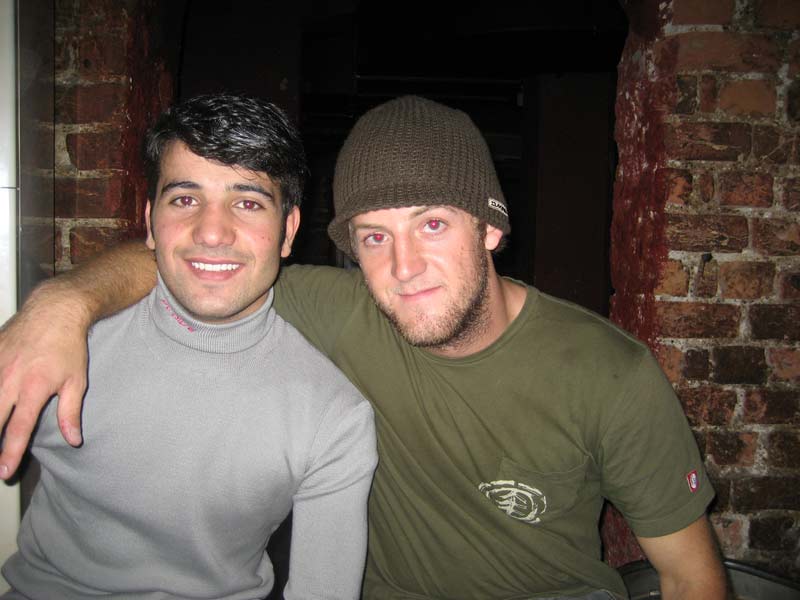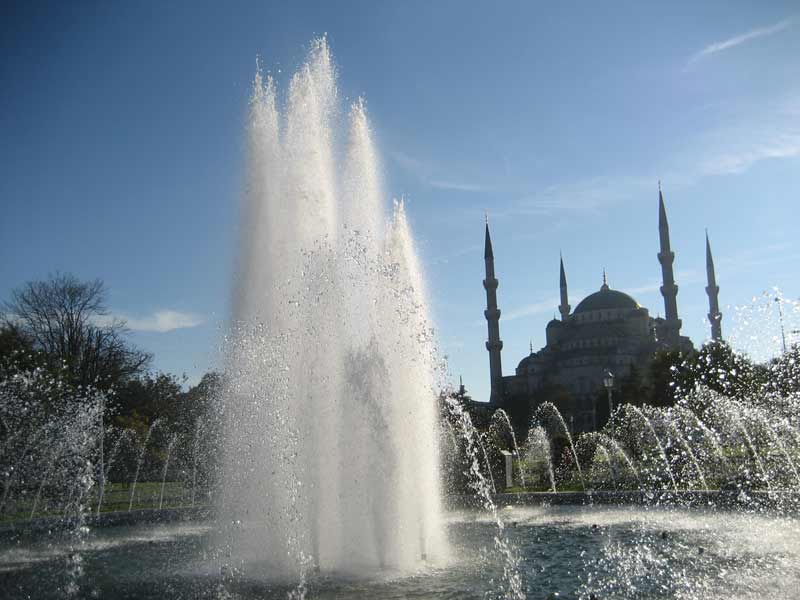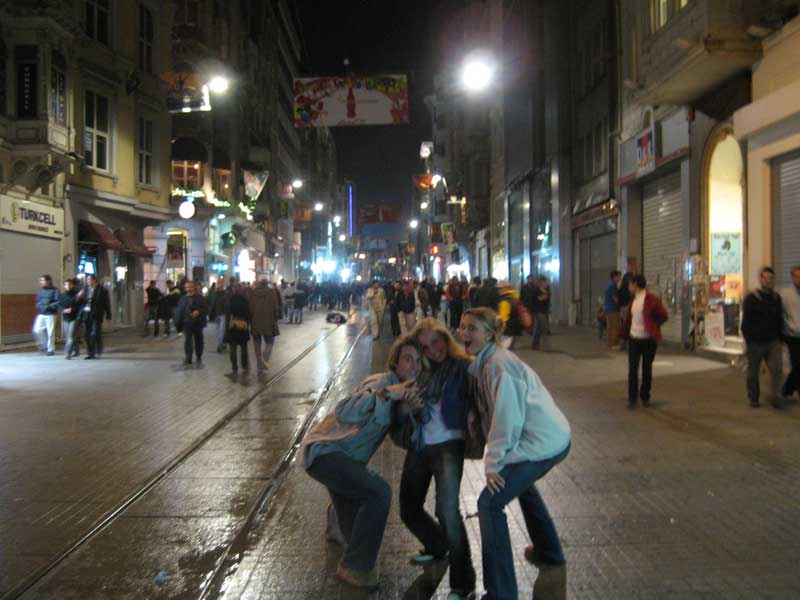Semester at Sea Fall
2006 Voyage 
TABLE
OF CONTENTS
- Home Page
- My bio
- Multisited Ethnography
Project: Realms of
Conflict Among Youth (Egypt, Turkey, Spain)
- Shipboard Interview
- Japanese Youth: To
Conform or Rebel?
- Vietnam: Youthful
Participation with Children
- Burma: Finding
Never-Neverland
- India: India's Poorest
Caste, the Dalits
- Egypt: A Wife Acquired, A
Dream Fulfilled
- Turkey:
Escaping Near
Imprisonment
- Spain: Witness to a
Protest in Barcelona
- Open Letter
 |

|
 |
Escaping Near Imprisonment in
Turkey
By
Ryan Harper
I would have never guessed that a chance encounter with two Kurdish men in Istanbul would have kept me from having to visit the Turkish prison later that very same evening. My visit with the two nineteen year old men began with my inquiry regarding the timing of the next metro that was to be coming along and from there we introduced ourselves. Considering the fact that we were all approximately the same ages the conversation started to revolve around the comparison of our somewhat similar interests.
My travel companion and I asked if they were still in school, to which they said no, and we continued by expressing our common love for the sport of futbol (or American soccer). It turned out that they were actually just wasting time before they had a match to go play in a little while. They also mentioned that they were awaiting enrollment in the Turkish military service, which was no more than ten days away. We found this to be a very interesting topic because mandatory enrollment is something that is very foreign to us back in the United States. They had mentioned that the service was different for them because actually engaging in combat is a doubtful scenario and mostly it is something that they enjoy doing because it gives them an excuse to leave their hometown.
Knowing the little that I did about the internal conflict between the Kurdish and Turkish ethnic people within Turkey, I asked what their experience has been and they replied that most important was their desire to speak their own language. They said that it was a tragedy to be forced to speak Turkish and that because the Kurds are such a minority within the state they often experience slight oppression or discrimination. This was the type of common conflict present in Turkey that I had read about in an article by Yael Navaro-Yasin entitled "The Historical Construction of Local Culture". The article presents two differently dressed Muslim women arguing about who has the right to proclaim Turkish heritage and the author states, "disagreement about the content of 'Turkishness' is extremely commonplace in the public culture of contemporary Turkey."
It became time to catch the metro as I had let it pass many times since my prior inquiry and I was now nearly late to meet some friends out at the popular bar district of Istanbul called Taksim Square. Later that evening I met some friends out in the street and they quickly told me that a cop had been following them because they did not have their passports on them and was insisting on taking them to jail. Thinking there must be some confusion I met the officer as he quickly approached and told him our situation and that we were instructed that we did not need to carry our passports on us when in the city Istanbul.
He continued to be adamant about taking us all to jail, because I as well did not have my passport with me, and the debate continued for an exhausting hour and a half or more. Just when I doubted our ability to talk our way out of the situation, I spotted my Kurdish friends walking no more than ten yards beside us, having just finished their futbol match. I yelled out to them to help us and they came over to talk with the officer on our behalf.
To make a long story short, we ended up bribing the ethnically Turkish officer, after which we all went out to celebrate and discuss the event further. The Kurdish man was not surprised at the Turkish officer and said that only because they were about to participate in military service did they even have the right to discuss the matter with the officer in the first place. He expressed his distaste for Turkish people repeatedly and I soon realized how common is such ethnic conflict in the struggle over the content of "Turkishness" in contemporary Turkey.